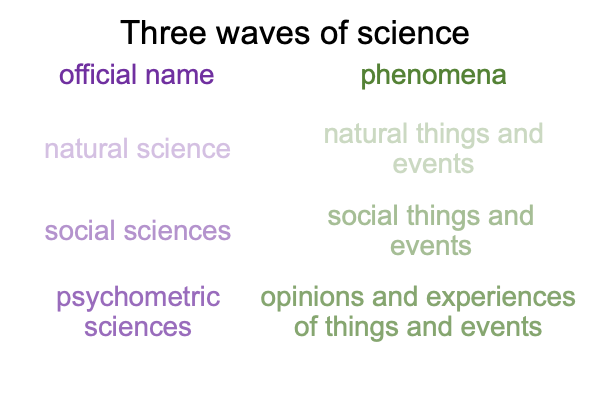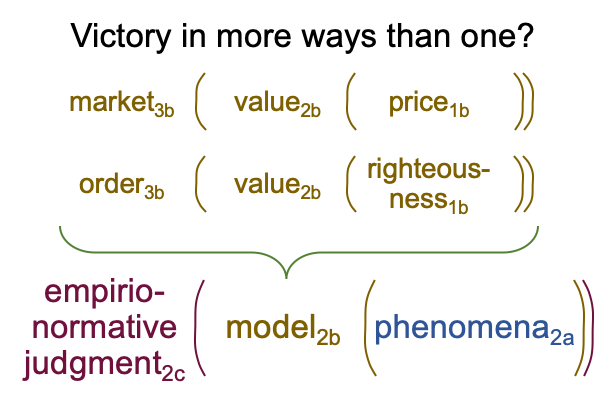0156 In chapter nine, Fuller asks, “Will universities survive the post-truth condition?”
In the 1700s, philosophers and theologians run universities.
In the 1800s, scientists demand departments in universities.
By the end of the 1900s, the scientismist one dominates the universities so much that traditional fields such as philosophy, belles lettres, art, geometry, rhetoric, history, language, and theology are in decline. Who needs these when no one reads, history is encapsulated in on-line “encyclopedias”, language translators are routine, and the route to opportunity1c for someone in “the humanities” leads directly to so-called “public education” run by administrators that are experts in the psychometric sciences?
0157 The psychometric sciences?
Think business and journalism.
Think education and public relations.
Think expertise in capitalism and expertise in socialism.
0158 Although I rarely directly quote a work under examination, Fuller proves too eloquent not to reproduce a snippet. Epistemologically, science is bought wholesale, for purposes of retail, not necessarily of consumption. Fuller continues, “Experts function to domesticate the more impressionable and diverse features of democracy…. Their modus operandisows the seeds of self doubt, so that people stop trusting their own judgment and instead defer to ‘those who know better’. In effect, experts manage to convert knowledge (opinions, the stuff of what people say2a) from a vehicle of personal empowerment to the great self-inhibitor (which, for the psychometric sciences, is value2b).”
Okay, I could not help but to add my comments in parentheses.
0159 What are reasonable3a,1a people supposed to do when experts3b regard common opinions and experiences2a as phenomena2a to be surveilled1b then modeled2b according to the disciplinary languages3b of manipulation and propaganda… er… I mean to say… the psychometric sciences3b?
0160 The reader may wonder, “Where does that term ‘psychometric science’ come from?”
Consider Looking at Joseph Farrell’s Book (2020) “The Tower of Babel Moment”, appearing in Razie Mah’s blog from December 26 through Dec 30, 2023. The term is coined by Dr. Farrell. The science of mind-manipulation is as old as our current Lebenswelt.
For our own modern Age of Ideas, I visualize three sciences, blossoming one after the other within the dynamics of the Positivist’s judgment, each fashioning its own variation of phenomena, that is, the fuel for the empirio-schematic judgment.

0161 So, what models2b are used by the psychometric sciences3b in order to arrive at an empirio-normative judgment2c?
Oh yeah, the expert-levels of the former adversaries in the Third Battle of the Enlightenment Gods constitute a situation-level actuality2b.
Here is a picture of the virtual nested form in the realm of actuality.

0162 A virtual nested form runs down a column in a three-level interscope.
For the virtual nested form in the category of secondness, the normal context of the empirio-normative judgment2cvirtually brings an actuality composed of both capitalist and socialist paradigms2b into relation with what the psychometric sciences regard as phenomena1b(2a) (that is, the observable and measurable aspects1b of what people are saying2a).
An utterance such as, “Jesus is the King of kings.” is irrelevant as phenomena2a. Why? How can that statement be modeled as value2b in terms of a financial exchange or an organizational objective that a centralizing state can capitalize… or should I say, “socialize”… on?
An utterance such as, “Don’t let a crisis go to waste.” is relevant as phenomena2a, since it can be modeled as value2b in terms of both price and righteousness.
0163 What does this imply?
The great state-funded empirio-normative universities, whether they survive or not, face a research ethics problem.
